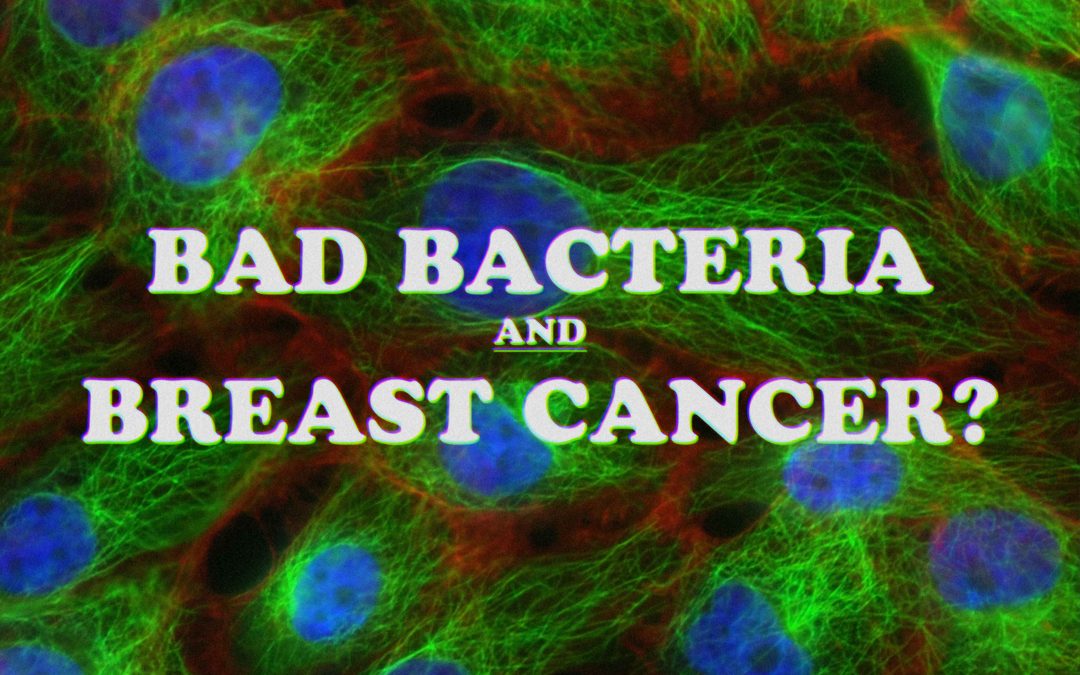Bad bacteria may be involved in the onset & metastasis of breast cancer
What is toxin-producing Bacteroides fragilis?
A myriad of gut bacteria coexist in our intestinal tract. Some are toxic and some are not depending on the strain or its type even within the same strain. Bacteroides fragilis, a type of gut bacteria, is usually a harmless symbiotic bacterium, but the toxin-producing Enterotoxigenic Bacteroides fragilis (ETBF) is involved in various inflammatory bowel diseases, including inflammatory diarrhea. A recent animal experiment has revealed that this bacterium causes colon cancer, and that colon cancer patients have a higher prevalence of ETBF than healthy subjects. It suggested that it can be a risk factor for colon cancer in humans.
ETBF was detected in tissue samples of breast cancer patients
On January 6, 2021, Johns Hopkins University in the United States published a paper about a discovery of that the transfer of ETBF, which is known as a cause of colon cancer, into the intestines or ducts of mice promotes the growth and metastasis of breast cancer cells (Cancer Discovery).
Several factors have been identified as backgrounds for developing breast cancer, including age, genetic changes, radiation therapy, and family history. Nonetheless, many women who do not fall into any of these factors develop breast cancer. In addition, experts have believed that microorganisms are present in the digestive tract, nasal cavity, skin, etc., but breast tissue has been considered to be sterile. However, recent studies have revealed that microorganisms are also present in the breast.
The research group conducted a meta-analysis of previously published clinical research data and found that Bacteroides fragilis was detected in all breast tissue samples and nipple discharge of breast cancer survivors.
Administration of ETBF to mice changed the breast to precancerous state
ETBF was orally administered to mice and the progress after the administration was observed. ETBF colonized the intestine of test mice, and precancerous ductal hyperplasia was observed in the breast of mice within 3 weeks. They also conducted an experiment in which ETBF was injected directly into the papillae of mice. As a result, similar symptoms appeared. Compared to the breast cells that were treated with non-toxin-producing Bacteroides fragilis, the breast cells that were exposed ETBF toxin exhibit rapid tumor growth and more malignant tumors were formed.
This study indicates that ETBF may be involved as one of the causes of breast cancer. It was suggested that the imbalance of the gut microbiota and the presence of microorganisms with toxins that cause carcinogenic effects in the intestine are risk factors for the development of breast cancer as well as intestinal cancer. ETBF is not the only gut bacterium that is considered to be involved in colon cancer. Recently, Fusobacterium has been also listed as a candidate of bacterium being involved in colon cancer. Research will continue to determine if bacteria are involved in the risk of carcinogenesis in other parts of the body from where the bacteria is located, such as in this case of breast cancer.
Credit to: Muneaki Takahata Ph.,D.
Reference
A pro-carcinogenic colon microbe promotes breast tumorigenesis and metastatic progression and concomitantly activates Notch and beta-catenin aces; Cancer Discovery (2021) https://cancerdiscovery.aacrjournals.org/content/early/2021/01/05/2159- 8290.CD-20-0537


Thanks for the inspiration.